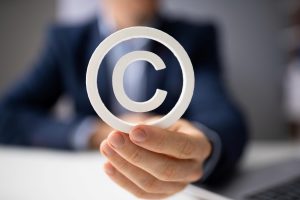Counterfeiting & piracy
It is sometimes said that copies are allowed as long as there are at least seven differences from the original. This is a persistent misunderstanding. Sometimes one difference is enough to make a ‘copy’ admissible. In other cases there can be dozens of differences, but the copy still infringes on the original design. The question of whether a copy infringes your rights is therefore not easy to answer and requires expert factual and legal assessment.
Possibilities in the event of an infringement
If there is an infringing copy, you as the rightful claimant can bring various actions against the infringer. For example, you can require the infringer to cease the infringement. The infringer will then have to stop producing, offering and trading the copies immediately. In addition, the infringer will have to recall the products from business customers.
Once the infringement has ended, the infringer will have to confirm this to you in writing under penalty of a contractual fine. It will also have to promise that production will not be resumed in the future. Furthermore, you may require the infringer to destroy or surrender the remaining stock of the products in question. In addition, you are entitled to compensation for the damage suffered. In this context, you can claim the profit earned by the infringer from the infringement.
A frequently heard defence brought by infringers is that they were not aware that they were infringing third party rights. They often indicate that they purchased products in good faith from their (foreign) supplier. However, this possible ‘good faith’ is irrelevant to the question of whether or not an infringement has been committed. Every commercial party has a duty to ensure that the products it offers and trades do not infringe the rights of third parties. It is therefore not possible to claim protection through ‘good faith’ or in connection with a supplier.
Finally, it is important to know that if you fail to take action against infringements of your rights for too long and/or not frequently enough, you could end up forfeiting those rights. This is an unnecessary risk and, of course, a waste.
Costs of proceedings
In intellectual property law, a special regulation applies to the reimbursement of any legal costs. Unlike in other proceedings, the loser in legal proceedings concerning infringement of intellectual property rights must, in principle, reimburse the winner’s full legal fees. The purpose of this arrangement is to prevent the rightful claimant (always) being left with the costs after action is taken against one or more infringers. Without this arrangement, the enforcement of intellectual property rights would become too costly, in practice, for many IP rights holders.
Need legal advice?
Would you like to know more about your options for taking action against counterfeit and unauthorised copies? Feel free to contact one of our Intellectual Property team specialists, without obligation. We will be happy to help you.

